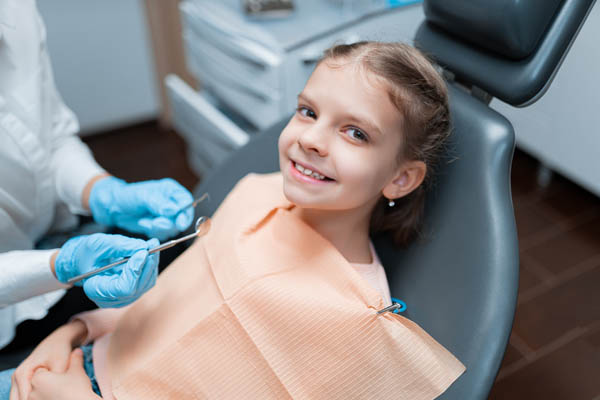What to Expect at Your Child’s First Visit to a Pediatric Dentist

Your child should see a pediatric dentist at an early age, ideally when they start to teeth. The aim is to have the dentist track the growth and development of their entire oral cavity. Regular visits enable the kids’ dentist to monitor the child as they hit different developmental milestones. The dentist also gets to detect and correct issues in their earliest stages. Here is what you should know about pediatric dentists and what to expect on your child’s first appointment.
The purpose of a child’s first visit to the pediatric dentist
A child’s first visit to the dentist should be an uneventful checkup. The point of the visit is to demonstrate that the dentist’s office is a matter of routine instead of something to fear. This is a significant investment that parents can make for their children. A child without a phobia of the dentist is likely to keep good habits, like routine dentist visits and timely treatment of dental problems.
A child’s first dental visit will also be the start of routine dental checks by the pediatric dentist. Dentists can use these regular visits to track the growth of children’s teeth, gums, and greater oral cavity.
What parents or caregivers should expect from a child’s first dentist’s visit
Kids’ dentists will always make sure to strike a rapport with young children. They will make their young patients comfortable with a kind, friendly attitude. They will also have child-friendly offices that include appropriate décor, a play area, and materials to occupy the kid in case of a short wait.
Here is what happens in the dentist’s office:
- There will be an exam of the teeth, gums, and soft tissues of the mouth
- Older children may have a jaw exam, a process that may require an X-ray
- Children with several teeth will get gentle teeth cleaning
- The dentist will advise parents on how to clean their child’s teeth or gums
- The dentist will inform the parent or caregiver about oral habits to teach and patterns to avoid
Pediatric dentists tend to avoid the use of X-rays whenever they can. They will only order medical imaging if oral health issues like tooth decay or potential orthodontic problems are detected. The entire checkup should last between 30 and 45 minutes.
What dental visits are like for children of different ages
A dental exam for an eight-month-old baby is different from the type of exam that a four-year-old gets. The eight-month baby will likely need their parent to hold them and keep them calm as the dentist does the exam. Dentists will advise parents of young kids on what to do during the exam.
Some two-year-olds will be able to get through a few minutes away from their parents. Others will not. Pediatric dentists adjust the way that they do their exams to cater to their young patients’ personalities. A four-year-old may be able to get an exam without a parent or caregiver in the room.
An early start is an excellent investment in your child’s oral health
Our pediatric dentist has years of experience in providing oral healthcare to young patients. They have a wealth of knowledge that they use to create a calming, beneficial experience for children. Contact us to schedule a visit with the dentist.
Request an appointment here: https://www.pediatricdentistrysemo.com or call Jayne F. Scherrman JS Pediatric Dentistry at (573) 271-3062 for an appointment in our Cape Girardeau office.
Check out what others are saying about our dental services on Yelp: Pediatric Dentist in Cape Girardeau, MO.
Related Posts
When your child has a dental emergency, a visit to a pediatric dentistry office is likely necessary. Most pediatric offices are well equipped to handle serious dental injuries. In fact, taking your child to see their regular dentist can be very beneficial. Your child can feel more at ease than they would in a new…
Pediatric dentistry is an essential part of a child's overall health regimen. Typically, a child should begin going to the dentist as soon as their first tooth comes in or when they are a year old. Taking a child to the dentist at an early age helps to instill good oral health habits that they…
Routine dental visits starting around age 1 are not only recommended; they are considered essential by many pediatric dentistry professionals. Regular cleanings and examinations are important for children once their first baby teeth erupt. These checkups significantly lower the risks for common dental issues while protecting your child from even bigger problems with tooth development…
Pediatric dentistry visits should begin while the child is still a toddler. Early visits allow the dentist to better understand every child’s oral development while baby teeth emerge. They can also diagnose and address any oral health concerns early to minimize their short-term and long-term impact.The following is a complete guide to pediatric dentistry for…
